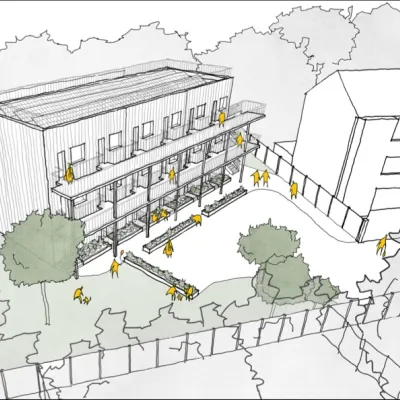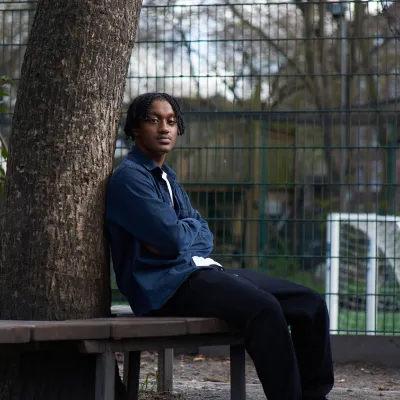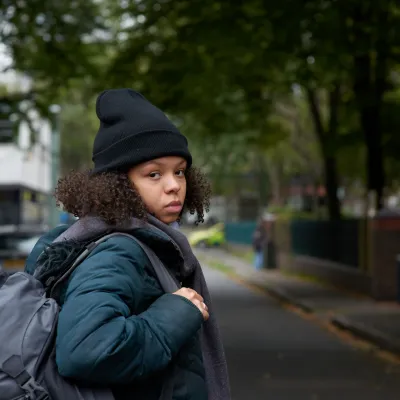Young adults make up 16 per cent of the whole prison population, with over a third going on to reoffend. In London, this number rises to just over 42 per cent. We know that having a safe and secure place to call home is a key factor in reducing the risk of reoffending. Yet around 30 per cent of the adult prison population leave custody without accommodation lined up.
Each prison place costs around £35,000 each year, so it’s crucial that more is done to break the cycle of reoffending.
Suitable housing is essential. It helps a young person to rebuild their life, allowing them to move forward into employment and a positive future away from crime.
Research with Nacro
Centrepoint teamed up with justice charity Nacro to examine the housing options and support available to young people when they leave the prison system. Based on our research, we’ve put together three requirements that are key to reducing reoffending. They will also make sure young people have safe and secure accommodation so they can turn their lives around.
1) Young people need the right preparation before leaving custody
Leaving prison is daunting and many young people will be living independently for the first time. They face the same challenges as all young people, but often lack a support network and have to learn how to live independently themselves. At the moment, prison does not effectively prepare young people for this.
“About a week before my release, someone from probation came in to talk to me, for the first time in four and a half years,” says Aaron, a young person who spent over four years in custody.
2) Young people leaving custody need access to a safe and stable home with an ongoing support network
Many prison leavers do not have accommodation lined up before release. This means they walk out of the prison gates and go straight onto the street. This situation pushes young people to take risks, putting themselves in unsafe situations.
“I was rough sleeping more or less. I was just knocking about. I did all-nighters in cars for one or two nights, here, there, going to mate’s houses. I was about for a little bit... being homeless can give you a kick back towards that direction [offending]. When you’ve got no money, you turn hungry,” says Jon, who finally received the support he needed when he arrived at Centrepoint.
3) Young people leaving custody need financial security
To access and sustain accommodation young people need a stable income. This can be incredibly difficult for young people with a criminal record, as they often get few second chances to make a fresh start. There are some employment and training opportunities within prison, but they’re fragmented and difficult to navigate. Opportunities that start at prison and continue on release are vital life lines for young custody leavers.
“If it wasn’t for my job, I would be screwed in every possible way. I had no plans, no future, no nothing. I wouldn’t even have had money enough to visit my family,” says Ali, who was supported by a charity providing employment opportunities within prison.
Calling for change
We’re now calling on the government to ensure all departments – justice, housing, health and education – work together to ensure we have a system in place to support custody leavers into suitable housing. With the right support, young custody leavers can and do turn their lives around and leave their pasts behind them.
Download our joint report with Nacro
Centrepoint and Nacro have conducted this research to examine the housing options and support in place for young people as they leave the prison system. The research is based on interviews with young custody leavers aged 18 to 25, and interviews with the practitioners who support them across a range of agencies






